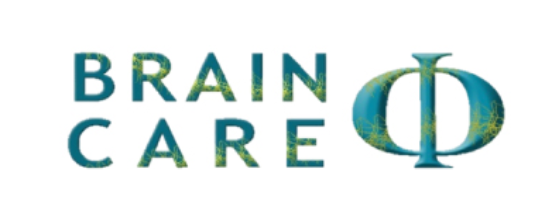
Epilepsy and Seizures
What is Epilepsy?
Epilepsy is a condition that affects the functioning of the brain. The electrical activity of the brain temporarily becomes extremely dysregulated and overactive resulting in alterations in consciousness, sensations, motor movements, behaviours and even thoughts. Which symptoms present will depend on where the altered brain activity occurs and how severely.
What Causes Epileptic Seizures
According to Epilepsy Action Australia (https://www.epilepsy.org.au/about-epilepsy/understanding-epilepsy/), approximately half of the people diagnosed with epilepsy will not know the cause. The condition may be inherited and present from birth or may develop later in life due to an injury, disease or infection.
What does an Epileptic Seizure Look Like?
As discussed earlier, seizures can present in many ways depending on the type of seizure and whether the whole Brain is affected or a specific area. Some seizure’s will be easy to identify and notice where as others may go un-noticed or simply seem like peculiar behaviour. In general, seizures can present in some of the following ways:
- Sensory: a person may experience physical sensations such as numbing, tingling, or burning in a region of the body for no apparent reason.
- Motor: This may range from subtle twitches or jerks to large contractions and or full body convulsions. Some seizures result in a complete loss of muscle tone.
- Autonomic Changes: Blushing, increased heart rate, nausea and temperature changes may occur.
- Emotional: Some people may experience rapid changes in emotion such as anger, fear, panic or anxiety.
- Cognitive: Alterations in thought patterns (confusion or strange thoughts), déjà vu, or even visual, auditory and olfactory (smell) hallucinations may occur.
- Consciousness: during a seizure a person may either be fully aware, partially aware, or completely unconscious with no memory of the events.
Seizures are generally categorized into focal onset seizures (with or without impaired awareness) which only affect a specific area of the Brain or generalized onset seizures which occur in both sides of Brain and result in a loss of consciousness. Often focal onset seizures can prelude a generalized seizure and be a warning sign of a more severe seizure to occur.
Depending on the seizure type, the duration may be anywhere from a few seconds to 2-3 minutes. However following this a person may experience confusion, tiredness, headaches, memory loss (of the event) and any physical injuries if violent convulsions or sudden drops occur. Following a seizure a person may need sufficient rest in order to recover from the event.
If you suspect you or someone you love has epilepsy, it may be best to first talk to your general practitioner regarding your concerns. Your GP may then help in more clearly understanding, identifying and managing your condition and will likely refer you to a specialist for further examination. This may be a Neurologist, an Epileptologist, or to the most relevant care provider.
The Epilepsy General Practice (https://www.epilepsyingeneralpractice.com/referrals) website also has links to information and resources relevant to your state or territory as well as hotlines to call for further information.
Management of Seizure Disorders and Epilepsy
While Brain Care can not diagnose epilepsy or make recommendations regarding medication or medical treatment, we do offer a range of services to assist people living with epilepsy. Epilepsy can have a significant impact on a person’s life and add significantly more emotional stress and challenges associated with every day life.
These challenges may be coping with psychological distress, attentional and learning issues, or the functional challenges and disturbances epilepsy may cause. Common psychological conditions associated with epilepsy include:
- Psychological Disorders such as anxiety, depression or bi-polar.
- Attentional deficit hyperactivity disorder (ADHD)
- Learning difficulties and intellectual deficits
- Managing challenges of daily life due to the functional challenges of epilepsy.
Brain Care offers comprehensive assessments and therapeutic intervention to assist with treating and managing symptoms of these conditions.
EEG, QEEG and Neurofeedback for Epilepsy
Brain Care also offers comprehensive brain function profile assessments to investigate the electrical patterns of your brain waves and cognitive functioning. EEG is a common neuroimaging method measuring electrical activity of the brain to identify disturbances in brain activity associated with epilepsy. At Brain Care we also measure the EEG and perform comprehensive quantitative analysis (QEEG) to identify any indicators of epileptiform activity or functional deficits that may be present.
By doing so, we can then plan a completely personalised Neurofeedback program to assist in managing symptoms related to epilepsy including seizures. Dysregulation of the brain’s electrical activity characterizes epilepsy, so by measuring this and re-training brain waves to be more adaptive, we can help reduce frequency and intensity of seizures. Neurofeedback for epilepsy has been investigated for over 30 years and has shown good efficacy (Update with references).
Neurofeedback is an applied neurotherapeutic intervention that measures electrical signals from the brain with specialized equipment and feeds it back to the person in a form it understands such as a video or game. The technique utilizes operant conditioning to inhibit and stabilize epileptiform brain activity. As a result, the neuronal excitability is reduced along with the seizure threshold, decreasing the severity and frequency of seizures. In many cases, a person with epilepsy will completely eliminate seizures altogether through learning to regulate their brain activity.
If you or someone you love is experiencing challenges related to epilepsy, contact our psychology clinic in Tweed Heads, where counselling is available for children, teens, adults, couples and families. Often the first step is the hardest, but Brain Care is here to support you through the rest of your journey.
WHO WE HELP
Anger Management
Eating Disorders
Epilepsy
Peak Performance
Contact Us

